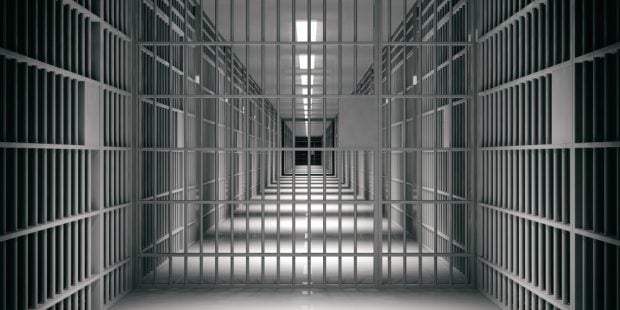WASHINGTON -- With potential annual savings of more than $104million at stake, the U.S. Department of the Treasury is continuingits push for direct deposit of Social Security and SSI checks.
|While officials were delighted to announce in June that the GoDirect campaign launched in 2005 had prompted a million people tosign up for direct deposit, 19.38% of recipients--almost 11 millionpeople--still insist on receiving a paper check. Each paper checkcosts 80 cents more than the direct deposit alternative.
|Under Go Direct, more than 700 financial institutions havejoined with Treasury to encourage customers and members to havetheir payments transmitted directly to their account. Of those 700,more than 300 are credit unions.
|"Credit unions have been some of our most robust partners," saysTreasury's Go Direct spokesperson Alvina McHale.
|So what's the hurdle? What's not to like about having a checkarrive at the bank or credit union sooner than it would in yourmail box, cutting the risk of having it stolen or misplaced andeliminating the chore of depositing it?
|A Treasury study identified four major barriers that preventfederal benefit check recipients from switching to directdeposit:
|- Emotion. The recipient is attached to the monthly ritual ofthe paper check.
|- Inertia. The recipient is receptive to direct deposit, butneeds motivation.
|- Information. The recipient doesn't understand how directdeposit works.
|- Mechanics. The recipient has no bank or credit unionaccount.
|"A major problem obviously, one we've been aware of from thebeginning and are trying to address, is dealing with a fairlysignificant unbanked population in this country," McHale notes.
|Treasury is piloting a debit card program in Illinois calledDirect Express. This summer the department will conduct a customersatisfaction survey of people enrolled in that program. So far morethan 2,600 individuals have signed up and Treasury expects toexpand that in 2008.
|"When we do inserts with paper checks--and we do inserts everythird month promoting direct deposit--it's very frustrating becausea lot of people phoning us at the call center are people withoutaccounts. We really want to have a solution that's going to workfor a lot more people."
|In addition to issuing flyers about the debit card option,Treasury did a direct mailing to the Chicago area and some areas inrural Illinois.
|The Direct Express contract with JP Morgan Chase is for calendaryear 2007.
|"That's for the pilot," McHale indicates. "That's not to say whowill be the provider going forward. We're actually going to begoing out and doing some queries to get a sense of who would beinterested in working with us."
|Treasury will definitely be reaching out to boomers and othernew enrollees as they sign up for Social Security and SSI benefitsin the years ahead.
|Contrary to what may seem logical, that boomers would be moretechnology savvy and willing to sign up for direct deposit thantheir older parents, when Treasury measured interest in directdeposit across different age groups the boomers were actually notas receptive as their parents.
|In fact, only 59% of boomers appear likely to elect directdeposit of Social Security compared to more than 80% of currentrecipients. The numbers are significant, since 77 million boomersare slated to start collecting Social Security in the comingyears.
|"That was a real wakeup call to us. We frankly thought we hadthe boomers sort of locked in," McHale says.
|The number one reason appeared to be that their employer didn'toffer it, so it was a new concept. McHale agrees credit unions maybe in a good position to talk to sponsor employers and SEGsincluded in fields of membership about direct deposit of paychecks.That will not only bring more money into credit unions on alow-cost electronic basis, but will position the boomers to moveseamlessly into Social Security direct deposit.
|McHale points out tellers are in an excellent position toencourage direct deposit when a member hands a Social Securitycheck over the counter. So Treasury is looking at best practices,in effect a competition among large, medium and small financialinstitutions. So far more than 60 credit unions have signed up.That best practice information will be shared with other creditunions and banks. Results will be announced July 24.
|"We really want people to learn from what's working in otherplaces," McHale stresses.
|A positive move is the growth of low-cost and no-cost accountsat many financial institutions, with banks and credit unionsreaching out to people in new ways.
|Even so, some people "like to get those paper checks in theirhands," McHale says. "Even if they have accounts, they are not asaware as we'd like them to be of the vulnerability of a papercheck. We don't want to scare people, but at the same time we wantthem to understand that nine times out of 10, when we have aproblem with a payment it's paper check related, not directdeposit."
|She points out that when Hurricane Katrina hit, 85,000 peoplewere scheduled to receive paper checks. Treasury had to scramble tofind them. A lot of documentation had disappeared along with theirhouses.
|Complete your profile to continue reading and get FREE access to CUTimes.com, part of your ALM digital membership.
Your access to unlimited CUTimes.com content isn’t changing.
Once you are an ALM digital member, you’ll receive:
- Critical CUTimes.com information including comprehensive product and service provider listings via the Marketplace Directory, CU Careers, resources from industry leaders, webcasts, and breaking news, analysis and more with our informative Newsletters.
- Exclusive discounts on ALM and CU Times events.
- Access to other award-winning ALM websites including Law.com and GlobeSt.com.
Already have an account? Sign In
© 2024 ALM Global, LLC, All Rights Reserved. Request academic re-use from www.copyright.com. All other uses, submit a request to [email protected]. For more information visit Asset & Logo Licensing.









